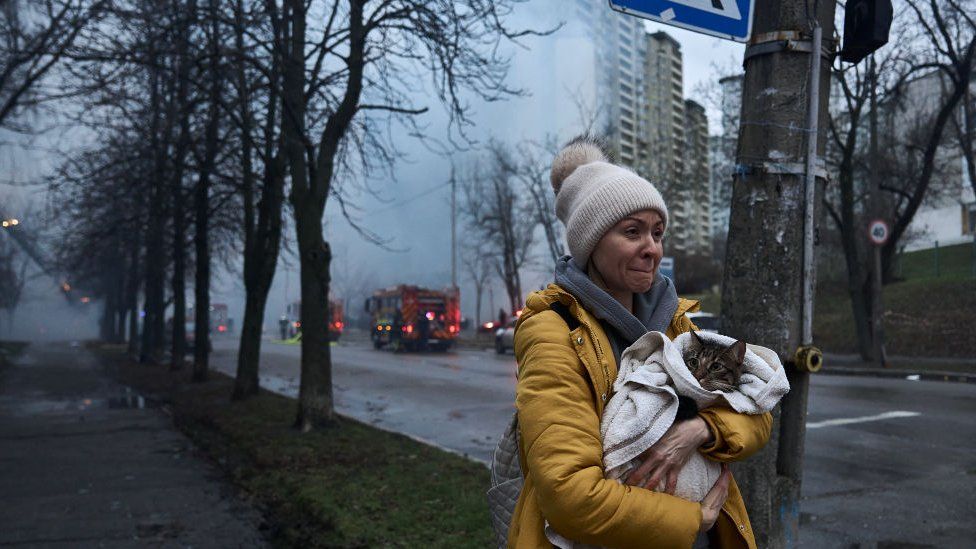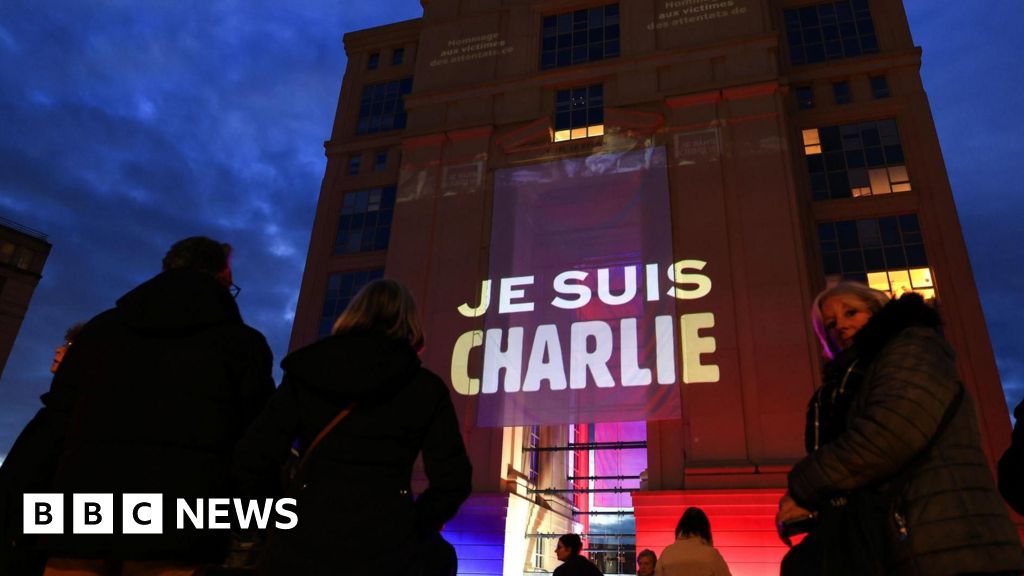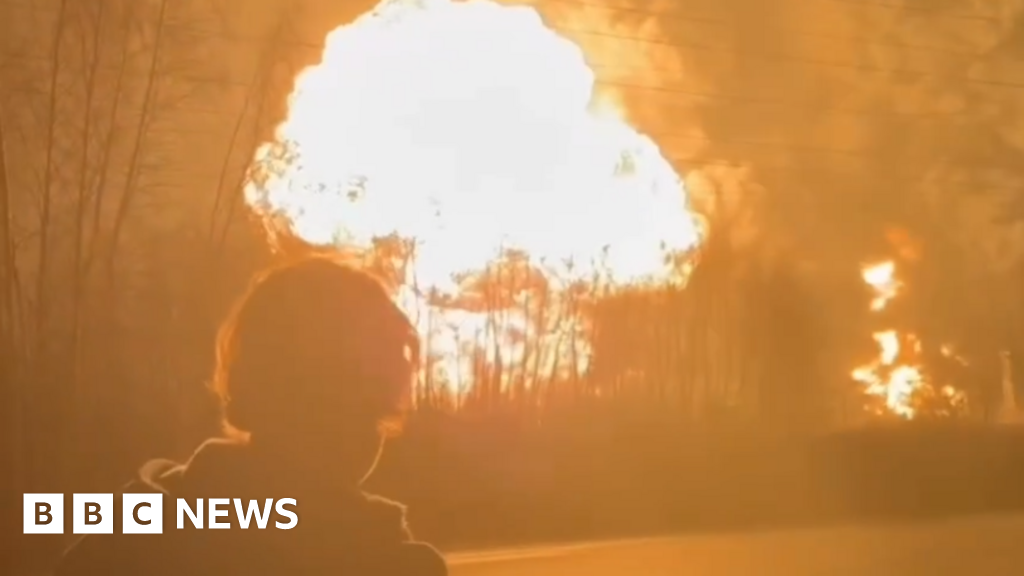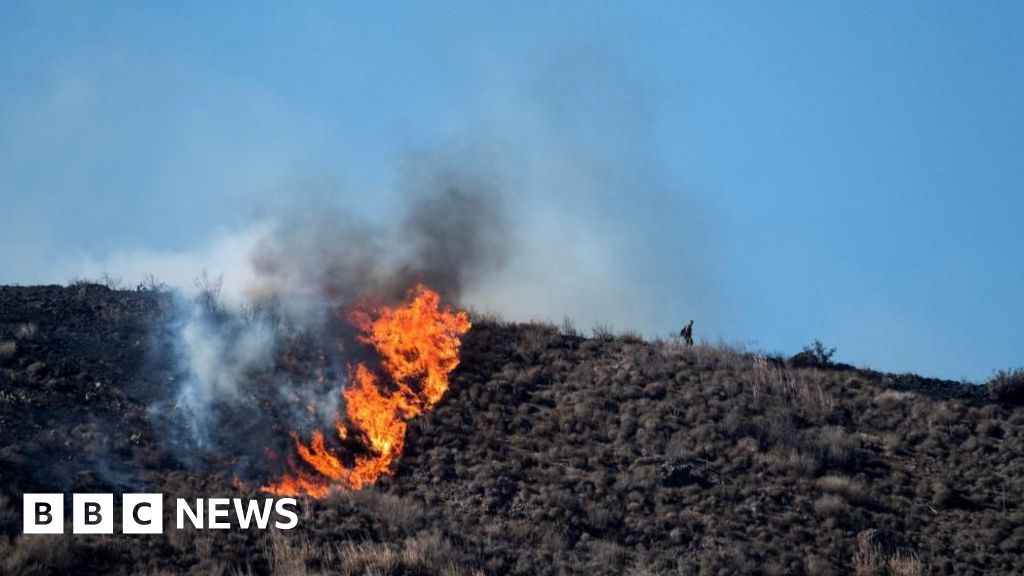ARTICLE AD BOX
 Image source, Kostiantyn Liberov/Libkos/Getty Images
Image source, Kostiantyn Liberov/Libkos/Getty Images
Russia's attacks on Ukraine continued on Tuesday, with four hours of attacks in Kyiv
By Olga Malchevska
BBC News
Ukrainians have seen in a second new year under some of the heaviest aerial bombardment since Russia's war began.
Kyiv is counting the cost of days of deadly attacks, while residents in other cities, including Odesa and Kharkiv, have shared their accounts of a grim start to 2024.
The new year had barely started when air raid alerts sounded across Ukraine. Four hours of drone and missile strikes continued on Tuesday morning.
There was little time at all for celebration on New Year's Eve.
"There is another air raid siren right now," said Ukrainian international politics analyst Hanna Shelest in a text message sent as she ran to a basement car park in the southern city of Odesa for shelter, with a glass of champagne in her hand.
It was 01:00 on New Year's Day and it was the second time since clocks had struck midnight that Odessa residents had been forced to flee what she called "Russian fireworks".
"The Shahed drones are coming. The first time we came down here at midnight, and now here it is again," she wrote.
An interactive map of air raids across Ukraine showed alerts covering more than half the country.
Later that morning, Hanna found out the drone strikes had taken the life of a 15-year-old boy in southern Odesa.
Russian-installed authorities, meanwhile, accused Ukrainian forces of shelling occupied Donetsk in the east on New Year's Eve, leaving four people dead. There was no comment from Ukrainian authorities, and the BBC cannot verify the details because foreign reporters are barred from reaching the area.
Russia's new year assault targeted a country already mourning the deaths of more than 40 civilians on a wave of attacks on 29 December and an attack on the centre of Kharkiv the following day.
Ukraine has hit back, with attacks on the Russian city of Belgorod that have left 25 dead.
Watch: Residential buildings were hit in several areas of Kyiv and Kharkiv in further Russian strikes
Kharkiv native Kateryna Talpa spent several months living in the city's underground during the first days of the Russian full-scale invasion. But she has gone back to her flat - if nothing else, to give herself some dignity, she says.
"We are in Kharkiv, celebrating the new year, watching the address of our president right now," she said in a video message, with Volodymyr Zelensky visible on the TV in the background.
She did not want to ring in the new year stuck underground, nor did she want to spend it in the cold darkness of a cellar or a car park, or in the relative safety of a foreign country.
Image source, Ukrainian presidency
Image caption,In a TV address, President Zelensky said Ukraine was alive and was fighting into 2024
In his address, President Zelensky promised to increase domestic production of weapons and ammunition this year, including at least a million drones.
Russia's Vladimir Putin made no mention of the war in his new year message, but vowed later to "intensify" attacks on Ukraine.
"When I was cooking our festive meal, the night before and tonight, I had to shelter in the bathroom," Kateryna said with smile. "The drones were right above our home."
The threat for people in Crimea this new year was very different.
One resident living there under Russian occupation sent news of their celebrations via an encrypted messenger app.
A picture showed a Christmas tree and one of the baubles on it displaying a yellow trident, Ukraine's national symbol.
Although Ukraine has targeted Russia's navy at ports in Crimea, there is little risk for most of the peninsula's residents.
Ukrainians in Crimea are more in danger of prosecution for showing resistance. A tree decorated in the blue and yellow colours of Ukraine could be deemed "extremist" by occupation authorities if it were discovered, the resident said.
They finished the conversation with a "Happy New Year" in Ukrainian, another violation, and the hope that 2024 would end in freedom and peace.

 1 year ago
19
1 year ago
19








 English (US) ·
English (US) ·